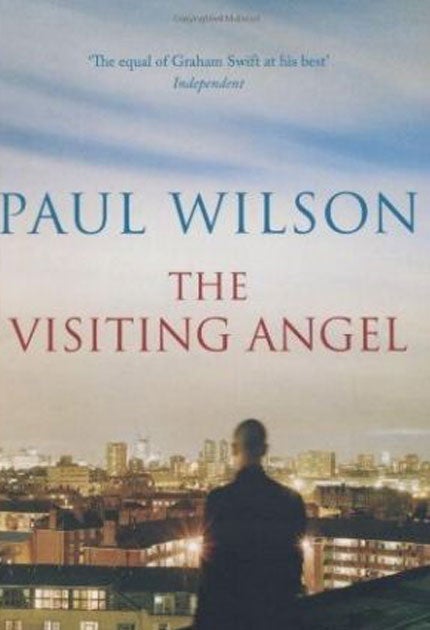The Visiting Angel, By Paul Wilson
A novel of divine inspiration

Your support helps us to tell the story
From reproductive rights to climate change to Big Tech, The Independent is on the ground when the story is developing. Whether it's investigating the financials of Elon Musk's pro-Trump PAC or producing our latest documentary, 'The A Word', which shines a light on the American women fighting for reproductive rights, we know how important it is to parse out the facts from the messaging.
At such a critical moment in US history, we need reporters on the ground. Your donation allows us to keep sending journalists to speak to both sides of the story.
The Independent is trusted by Americans across the entire political spectrum. And unlike many other quality news outlets, we choose not to lock Americans out of our reporting and analysis with paywalls. We believe quality journalism should be available to everyone, paid for by those who can afford it.
Your support makes all the difference.The novel is a moral instrument. Discuss. Even hard-hearted Vladimir Nabokov, in whose novels the forms of comedy and tragedy often impersonate each other, showed his abhorrence of cruelty and celebrated love and the frail uniqueness of the individual. As does Paul Wilson in his gruelling novel set in the world of social work. If he sometimes wears his heart on his sleeve in a way that would have brought out the acidic critic in Nabokov, he knows how to display it in a complex and exciting work of fiction.
Patrick's mother tells him, when he is a little boy, that his brother Liam is "from the angels". Patrick is awkward, slow-witted, afraid of life. His brother is a prince of boys, a fearless climber and athlete, a storyteller who says he will be a writer when he grows up. But their mother dies, their father deserts them and the two boys are sent to an orphanage. Their life there is told in a series of flashbacks; the novel opens in the present, with Patrick remembering how he received a letter telling him of his brother's death. Liam had lived in America; he had, it seemed, succeeded and written a well-received novel.
Patrick has never been anywhere. After a series of dead-end jobs and a failed marriage, he has worked for 17 years at The Limes, a mental-health rehabilitation centre in Manchester. Patrick is bombarded with management-speak communications (expertly parodied by Wilson) by the trust who employ him.
A health worker, Sarah Montague, rings Patrick. She has to make an emergency referral. A patient is outside the window, high on some scaffolding, and they think he may jump unless offered a safe place. The man is called Saul. He offers no other name or identity. Ragged, shoeless, alcoholic, he has the ravaged pale face of the dying. The only information he will give is that he is an "angel" and has only a few days to fulfil a mission of salvation. It becomes clear that part of his mission is to reveal the truth about the tragic and wasted life of Patrick's brother.
It would be unfair to reveal more of the plot, which moves to a terrific climax. The complex time-scales and back-story can be momentarily confusing. But the scenes among those written off by the world have a devastating accuracy, with a tender depiction of love among the disregarded and abused.
Join our commenting forum
Join thought-provoking conversations, follow other Independent readers and see their replies
Comments